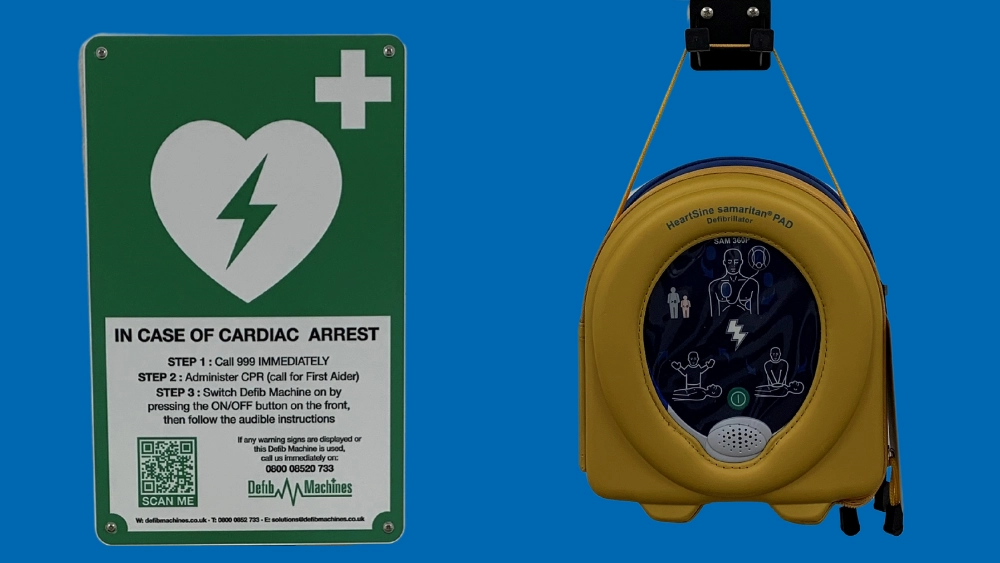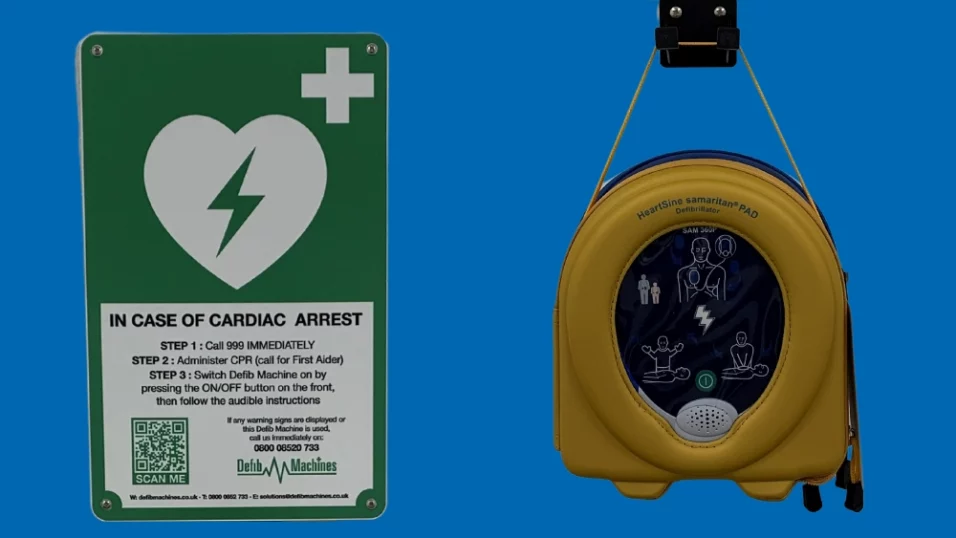



Protecting our people by installing life-saving defibrillators at every Chubb branch
By Chubb | 5th September 2023




By Chubb | 5th September 2023
Chubb has installed life-saving defibrillators at all of our operating branches across the UK and Ireland to strengthen the safety of our people and in support of the campaign of one of our colleagues. In April, the ex-wife of David Lund, who is the Fire Systems Training Manager at the company, tragically died after a heart attack at the age of just 43. David is petitioning the government to make it law that businesses giving members of the public access to their premises must supply, maintain and make available AEDs. We are backing David’s petition by taking action to make sure every one of our branches across the UK and Ireland has the life-saving equipment.
What is a defibrillator?
Defibrillators are devices that give a high-energy electric shock to the heart of someone who is in cardiac arrest. A defibrillator may also be called a defib, an AED (Automated External Defibrillator) or a PAD (Public Access Defibrillator). By performing CPR and using a defibrillator, you’ll give someone the best possible chance of survival.
Why do we need more defibrillators?
Sudden cardiac arrest is a leading cause of premature death. In cardiac arrest, the heart’s usual steady rhythm is replaced by disorganised electrical activity called ventricular fibrillation (VF). The sooner VF is treated by an electrical shock from a defibrillator, the greater the chance of a person’s life being saved. For every minute that someone’s in cardiac arrest without receiving CPR and having a defibrillator used on them, their chance of survival decreases by 10%. Evidence suggests that where AEDs have been used, the outcomes are far more favourable for an individual who suffers a cardiac arrest than if treatment is delayed until the arrival of the emergency services.
How do you use a defibrillator?
The Resuscitation Council UK guidance on AEDs says the equipment is safe to use and can be readily used by untrained bystanders. Public access defibrillators are specifically designed to be used by the public. When you switch the defibrillator on, it will provide clear instructions and talk you through what you need to do. A defibrillator will not harm the person suffering a cardiac arrest and will only give them a shock if and when it is needed. Following its simple instructions could save someone’s life.
What does the law say about defibrillators?
As an organisation or company, it is a legal requirement to take precautions to reduce foreseeable risks, to document this and to be able to present it to the HSE if requested. Completing a first aid needs assessment entails making an estimate of the risk of a cardiac arrest occurring at a location and considering the potential consequences if it were to occur. Currently, there is no legal requirement for UK workplaces or public spaces to buy a defibrillator to comply with the Health and Safety (First-Aid) regulations 1981 – although schools are the exception and must have at least one AED on the premises. However, AEDs are becoming more prevalent in the wider community – and many workplaces have voluntarily invested in equipment.
We urge you to support David’s campaign by signing this petition: